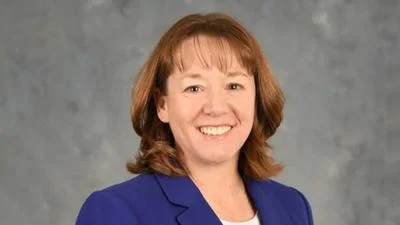Congressman Mike Bost | Congressman Mike Bost Official U.S. House Headshot
Congressman Mike Bost | Congressman Mike Bost Official U.S. House Headshot
Rep. Derrick Van Orden (R-Wisc.), Chairman of the House Committee on Veterans’ Affairs Subcommittee on Economic Opportunity, addressed concerns today regarding the management of the Digital GI Bill (DGIB) project. His remarks came at the beginning of a subcommittee hearing to discuss a report from the VA Office of Inspector General (OIG), which highlighted significant issues in the planning and execution of this program.
Van Orden emphasized that this issue should be approached in a nonpartisan manner, aiming to understand how to rectify the DGIB project's trajectory. "I believe this is a topic that can be approached in a nonpartisan manner as the ultimate goal of this hearing is to get down to brass tacks and figure out how VA can continue its efforts to get the DGIB program back on track," he stated.
During a joint hearing with the Subcommittee on Technology Modernization in July 2023, Congress had already expressed concerns about how the project was being managed under the Biden-Harris administration. Rep. Matt Rosendale's comments from that hearing were reiterated by Van Orden: “I believe the concept (of DGIB) remains sound, but the bureaucracy managing the project is floundering.”
The OIG report issued on August 28, 2024, confirmed many previously expressed fears about mismanagement. According to Van Orden, "this project was hindered from the outset because 'VBA failed to include staff who had the required technical expertise to develop performance work statements.'"
The report also criticized unclear or unrealistic initial contract requirements and highlighted leadership accountability issues within VA. Van Orden pointed out past failures with similar projects dating back to 2008, indicating systemic issues within VA's management practices.
One major concern raised during today's hearing was related to costs and delays. The project's lifecycle cost is now projected by MITRE—who declined an invitation to testify—to reach up to $2.7 billion, over a billion dollars more than initially estimated in 2021. Additionally, completion has been delayed from late 2024 until at least 2026.
Van Orden stressed that accountability is crucial for both taxpayers and student veterans relying on this system: "Student veterans deserve a modern system that they can count on. Taxpayers deserve to know that their investment is worthwhile – period."
He criticized ongoing leadership mistakes within VA and called for transparency regarding what resources might be needed from Congress for successful implementation: "We have to get to the bottom of these systemic failures."
Van Orden concluded by expressing his anticipation for recommendations from both OIG and Accenture on ensuring DGIB's success when completed.
With those remarks delivered, he yielded time for opening comments from Ranking Member.






 Alerts Sign-up
Alerts Sign-up